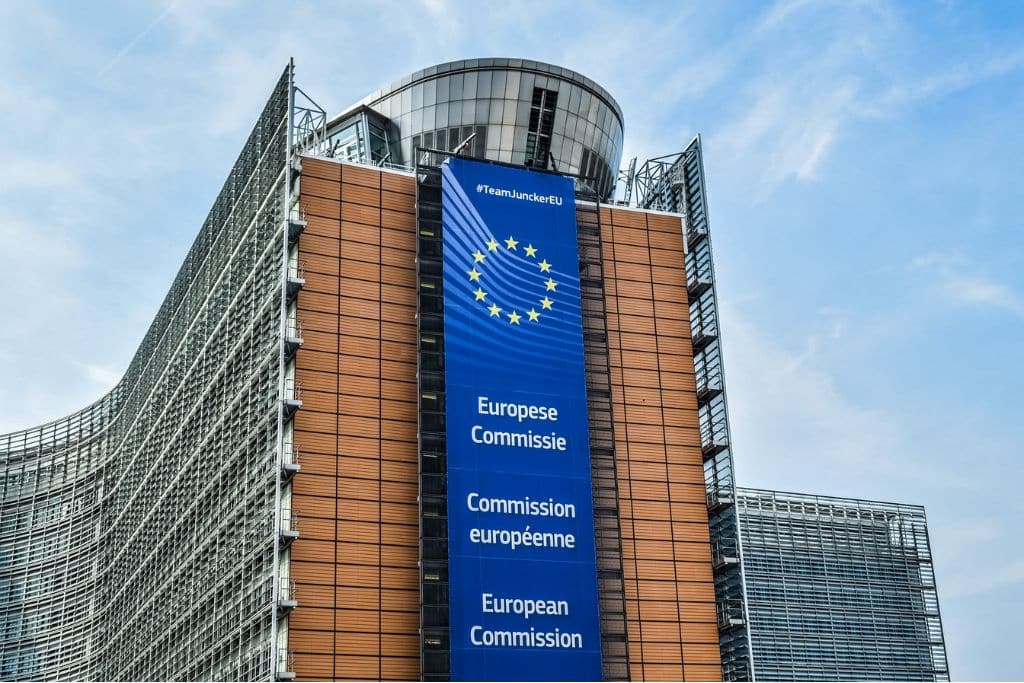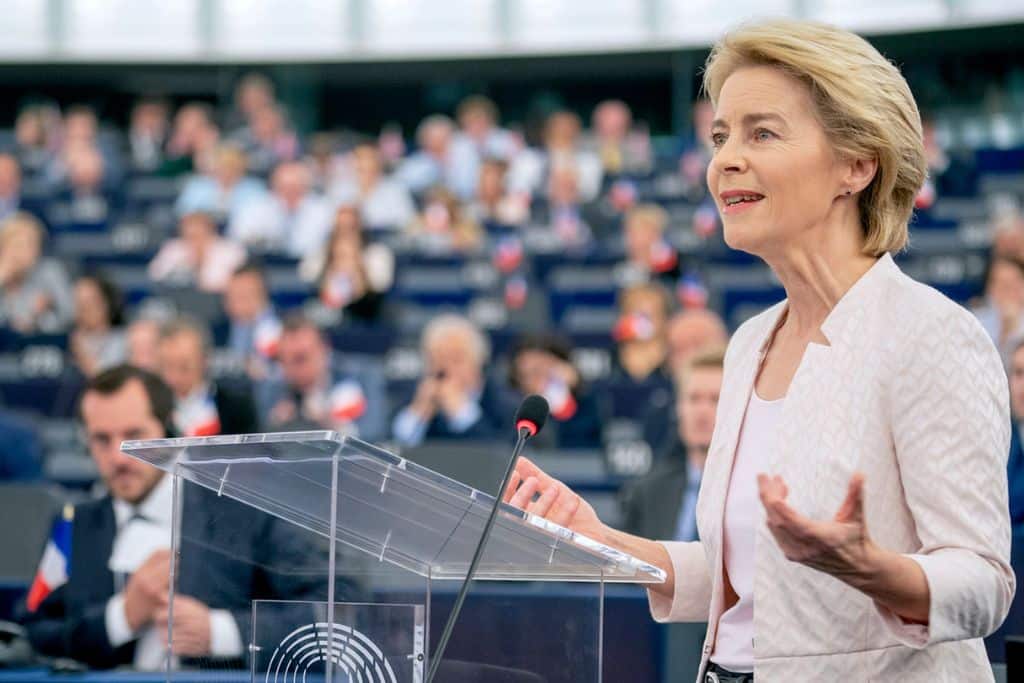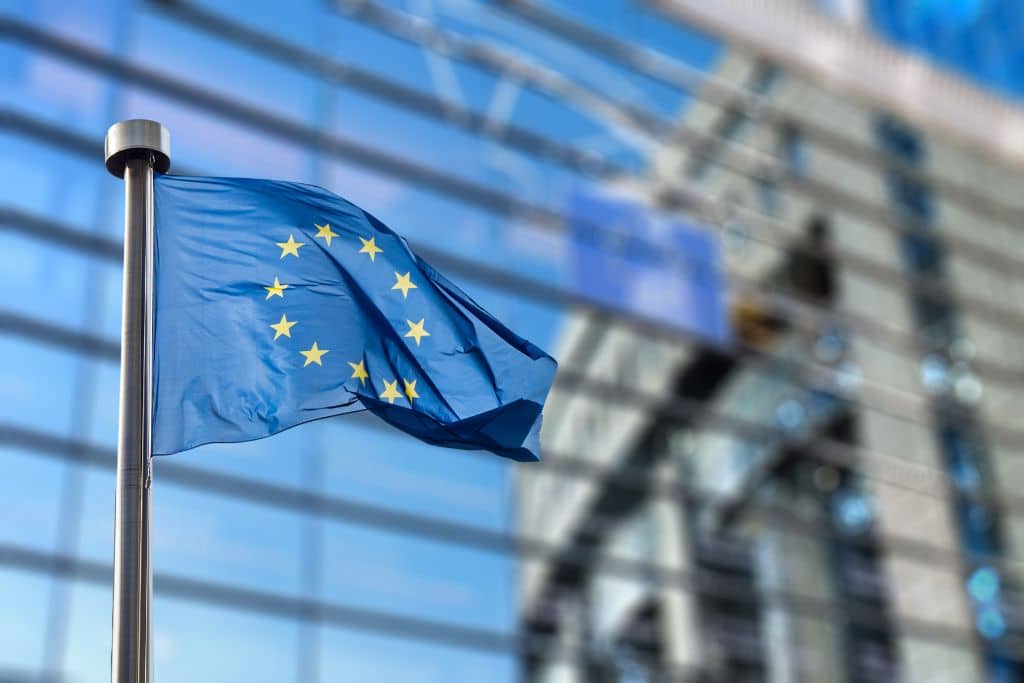In a move that redefines the European Union’s approach to climate policy, the European Commission planned major rollbacks of the European Green Deal rules with legislative proposals aimed at simplifying some key sustainability directives. The Omnibus Simplification Package significantly narrows the scope of sustainability reporting and due diligence obligations, watering down the bloc’s corporate accountability legislation.
—
The European Union (EU) has long positioned itself as the forefront of global climate action. Their flagship initiative, the European Green Deal, aimed at achieving climate neutrality by 2050, fostering a sustainable and circular economy, and ensuring a just transition to all sectors of society.
To operationalize these ambitious climate neutrality targets, the Commission introduced three key regulations: the Corporate Sustainability Reporting Directive (CSRD), which requires companies to disclose detailed information about their environmental, social and governance (ESG) impacts, aiming at improving transparency and guiding sustainable investment decisions; the EU Taxonomy Regulation, a classification system that defines which economic activities are environmentally sustainable, designed to channel investments toward genuine green projects, and the Corporate Sustainability Due Diligence Directive (CSDDD), aiming to foster sustainable and responsible corporate behaviour in companies’ operations and global value chains.
These regulations are a major component of the successful implementation of the Green Deal’s goals, as they provide the main regulatory framework under which companies and EU member states are supposed to operate. They also serve to improve transparency on sustainability reporting and help guide sustainable investment, promoting sustainable economic practices and holding businesses accountable.
Cutting the Red Tape
In February, the European Commission presented the Omnibus Simplification Package, signaling a significant shift in the bloc’s approach to climate change. It is part of a strategy to make Europe more competitive in a precarious geopolitical environment, particularly according to the fear that Europe’s economy is stagnating and lagging behind that of the US and China.
The main argument supporting the advancement of the Omnibus was that reporting and due diligence reduce competitiveness because of the associated compliant expenses. Lowering these expenses through simplification, European lawmakers argued, would increase competitiveness and promote better business across Europe.
However, the rhetoric of simplification hides a de facto retreat from sustainability commitments. At the heart of the Omnibus package are several changes that target the key sustainability regulations that underpin the European Green Deal.
Reducing Corporate Accountability and Transparency
The Corporate Sustainability Due Diligence Directive, which compels companies to ensure that human rights and environmental standards are upheld not only within their own operations but throughout their global supply chains, is the legislation that suffers the most under the simplification proposal.
Under the narrowing of obligations stipulated in the Omnibus, companies are required to conduct due diligence only on their direct business partners (e.g. immediate suppliers or contractors). This does not include small suppliers, as companies with fewer than 500 employees are exempt from due diligence requests, unless explicitly linked to known violations. In other words, companies would no longer be required to investigate environmental or human rights malpractices of indirect supplies (e.g. raw material producers) or smallholder supplies.

The most severe violations, such as deforestation, forced labour, or environmental degradation, however, typically take place in these lower tiers of the supply chain, for example at mining sites or plantations, and this change could severely undermine the EU’s ability to prevent and stop abuses.
The CSDDD also required companies to terminate business relationships as a last resort if severe abuses cannot be mitigated. The Omnibus eliminates this obligation, allowing firms to continue partnerships as long as they claim to be ‘’addressing the issue.’’
You might also like: The Environmental Impact of Illegal Mining in Latin America
Reducing Scope and Reporting
The Corporate Sustainability Reporting Directive is also on the chopping block. While originally requiring over 50,000 European companies to report detailed information about their environmental, social and governance (ESG) impacts, under the Omnibus simplification, only companies with more than 1,000 employees and a net turnover above €50 million (US$55.9 million) are subject to mandatory reporting.
The move effectively excludes some 80% of European companies from sustainability reporting, which will now be unaccountable for their sustainability practices. It also reduces the transparency necessary for green investments and informed consumer behavior.
Delayed Implementation
On top of reducing the breadth of reporting and due diligence requirements, the Omnibus also proposes delays in the implementation of the CSRD and CSDDD regulations by two years to 2028.
These delays effectively grant companies more time to sidestep their sustainability obligations, potentially contributing to the perpetuation of harmful practices. Human rights abuses, forced labor, or environmental destruction, for instance, could go unchecked for years without the necessary oversight and transparency.
Backlash
As sweeping as the European Commission’s Omnibus simplifications were in scaling back sustainability regulations, so, too, has been the backlash they provoked. A broad and diverse coalition of stakeholders, including political parties, trade unions, environmental and human rights NGOs, and advocates for corporate transparency, have vocally opposed the proposal.
Over 360 environmental and human rights organizations have called on the European Union and EU national governments to suspend the Omnibus deregulation proposal.
Among the most vocal critics has been a coalition of climate and human rights NGOs, including ClientEarth, Friends of the Earth Europe, the European Environmental Bureau, and Corporate Europe Observatory. These organizations presented a formal complaint to the European Ombudsman, accusing the Commission of undermining sustainability progress with the Omnibus simplifications – particularly through failure to properly gather evidence and conduct impact assessments, closed-door consultations, lack of transparency, and heavy, unrestrained industry lobbying.
Some troubling details of procedural violations have emerged. Only about 15% of companies invited to consultations were small and medium enterprises (SMEs), even though they make up 99% of EU businesses and were supposed to be a major focus on the simplification agenda. Most of the companies consulted came from just five European countries – Germany, France, Italy, Spain and the Netherlands – plus the UK and US, raising concerns about geographic bias.

Perhaps most strikingly, the Commission proposed and adopted these significant sustainability law revisions in less than four months, an unusual speed for a legislation of this scope. Furthermore, the interservice consultation period, typically a 10-working-day window given to the relevant Commission departments to comment on the proposal – was held over just 24 hours over the weekend, violating the Commission’s own procedural rules.
Political Divide in Parliament
The debate over the adoption of the Omnibus in the European Parliament has also been marked by sharp political divisions, reflecting broader ideological differences on deregulation, sustainability, and the pace of legislative change.
The center-right European People’s Party (EPP), currently holding the parliamentary majority, is pushing for urgent adoption and significant administrative simplification, aiming to reduce burdens on businesses, especially SMEs. The party pushed to fast-track the package, and although they emphasize that simplification should not entail total deregulation, they are considering alliances with more right-leaning groups to secure a quick passage.
The alliance could constitute a severe threat to European sustainability goals. The far-right in the European Parliament, the European Conservatives and Reformists (ECR) and other fringe groups – who in the past have called to put an end to the European Green Deal altogether – have argued that the package does not go far enough in deregulation. They have called for even more dismantling of existing sustainability and social directives, viewing current regulations as a major barrier for competitiveness.

The EPP collaboration with far-right groups in order to pass legislation risks breaking the centrist coalition that gave Commission President Ursula von der Leyen her mandate. The Omnibus serves as a major test on whether the EPP will keep working with its centrist allies or pursue its agenda with right-wing support, potentially destabilising the EU’s political balance.
Center-left and left parties have largely been skeptical of the Omnibus package. While open to some simplification, the center-left Socialists & Democrats (S&D), the second-largest group in the European Parliament are wary of using the package as a pretext for deregulation or to weaken social and environmental standards. They oppose any collaboration with the far right and insist that simplification must not come at the expense of protections for people and the environment.
Other left wing groups were even harsher in their opposition to the Omnibus package. The European Greens have strongly opposed the package in its current form, viewing it as “deregulation under the guise of reducing bureaucracy’’ that threatens the EU’s ecological transition and penalizes companies already committed to sustainability. The Omnibus risks rolling back climate and social objectives and ruining decades of corporate accountability.
The Left group has also criticized the proposal, accusing the Commission of putting private interests and short-term business growth over climate and human rights obligations. They have called the Omnibus package ‘’a race to the bottom.’’
What’s Next?
The Omnibus Package risks setting a dangerous precedent beyond the immediate impact on sustainability regulation. This decision appears to be business driven, prioritizing private interests and short-term economic concerns over long-term social benefits. This sudden wave of deregulation seems to undermine the values of the European Union itself, creating uncertainty and contradicting EU’s commitments to social and environmental goals.
With core sustainability regulations on the line, the outcome of this legislative battle will not only shape the immediate future of EU climate policy, but may also define the Union’s credibility as a global leader on environmental and human rights issues.
This shift has not happened in a vacuum. The deregulatory drive behind the Omnibus proposal has been significantly influenced by intense corporate lobbying, particularly from industry groups seeking to limit reporting obligations and reduce compliance costs. Corporate lobbying has been a long standing issue in the European institution; still, reports from Friends of the Earth Europe and Corporate Europe Observatory have detailed how business lobbyists, especially representing large multinationals, have successfully pushed to weaken and delay sustainability directives with exceptional speed and efficacy, gaining privileged access to the Commission’s scrutiny process and limited consultation with SMEs and civil society.
Surely, geopolitical instabilities – most notably the war in Ukraine and the tense relations with Donald Trump’s America – have fueled a narrative of urgency around competitiveness. Energy insecurity, inflation, and supply chain disruptions have amplified calls from certain political factions to strip back regulatory frameworks in the name of economic resilience. While legitimate concerns about overburdening businesses exist, there is a growing fear that these pressures are being used to justify a broader retreat from environmental and social responsibility.
As debates and negotiations in Brussels continue to unfold, the stakes are high. The decisions made now could either cement a deregulatory precedent that weakens the EU’s climate and human rights architecture – or mark a turning point where legislators recommit to the principles of the European Green Deal. It is essential that centrist and progressive forces in Parliament resist pressure from far-right and ultra-liberal factions pushing for deeper rollbacks, and instead work together to defend the integrity of the EU’s sustainability agenda.
There is still time for the EU to change course and reaffirm its climate leadership. A future-proof Europe must not sacrifice environmental and social protections for perceived short-term gains. As global challenges mount, the EU’s strength lies not in abandoning its values, but in upholding them with consistency and courage. The Omnibus is a test of the bloc’s political will to stay true to its commitments to people, planet, and future generations.
This story is funded by readers like you
Our non-profit newsroom provides climate coverage free of charge and advertising. Your one-off or monthly donations play a crucial role in supporting our operations, expanding our reach, and maintaining our editorial independence.
About EO | Mission Statement | Impact & Reach | Write for us








